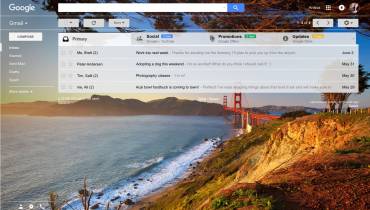5 Things to Know about Facebook - Possibilities and Limitations

We use it almost every day, but what do we really know about the possibilities and limitations of Facebook? We have listed 5 interesting things that you should know about this favorite social network.
1. Facebook doesn’t forget.
It is not a secret that Facebook stores a lot of your personal information. However, Facebook might ‘remember’ much more than you imagine. For example, many of us still think that if you delete a photo on Facebook, it disappears online for good; but if you still have a direct link to the picture, it’s no great hardship to find again.
Apparently, Facebook is also keeping all your people-search history in your activity log. Yes, creepy, isn’t it? Are you still hung up on your ex? Constantly checking your little sister’s pictures to make sure she isn’t getting mixed up with bad boys? Or are you secretly longing for that one special guy or girl? Facebook knows it all! Forgetting to log off on a friend’s computer can now have some nasty consequences.
Luckily, it is possible to erase your search history. Go to your activity log, click ‘more’ in the left column and then click ‘search’. When clicking ‘clear searches’ all this sensitive information is probably moved onto one of the servers in the Facebook catacombs, but at least it’s not online anymore. So go and clear your search history! (After you’ve finished reading this of course).
2. Facebook addiction is real.
That Facebook can be quite addictive is something of an understatement. The Facebook Addiction Disorder (FAD) is now even a recognized illness. Getting addicted to something is often part of human nature, but Facebook might be helping you a little by making its website as emotionally engaging as possible. Before Facebook adds new features, they run tests to see which innovations will be most immersive to their users. While Facebook remains the most successful social network of all time and a revolutionary means of communication, make sure that you balance your online social life with your real life engagements.
3. ‘Killing’ friends is relatively easy.
It doesn’t take much to convince Facebook that one of your ‘friends’ is dead and turn his or her profile into a memorial page. All you have to do is pretend to be a relative of the deceased, fill out the ‘memorialization request’ and send a link to an online obituary of someone with a more or less similar name. Once you find yourself among the dead, it is difficult to come back to life. The victim must fill out a form and prove that he/she is still alive and kicking. It may take more than a week before your account is reactivated.
With the memorialization request, Facebook gives families the opportunity to freeze the account of a deceased. However, Facebook might want to treat the evidence more carefully before deciding to kill someone digitally. Maybe even a simple ‘reply to keep your account active’ message would suffice! Hopefully this goes without saying, but please don’t pull this as a prank on your friends, as it’s a total pain to reverse if you are still very much alive!
4. Facebook and the supermarket strategy.
Just as supermarket chains often reposition all the products in their stores, Facebook also regularly likes to change the layout of your profile page. By shuffling around all the elements on your profile page, users must take in all the information again, including the advertisements.
Sometime the changes are only be minor; such as when they replaced the thumbnails in the header with tabs, redirecting you to separate pages. Furthermore, your interactions and messages from friends were all placed in the wider column on the left-hand side, instead of being randomly split up between two columns. The narrower column on the right-hand side became the new ‘collection manager’, where you can place your photos, friends, likes, etc. in the order you like.
At the time of the changes, it was reported that New Zealanders have seen the changes, before the rest of the world got the new timeline updates. What we do know is that the site’s blue color will probably not change in the near future, since Mark Zuckerberg is color-blind and cannot see red or green.
5. Facebook saves the lonely souls.
Ever wondered why some of your friends feel the urge to share their every thought with you on Facebook? Scientists have discovered that people who regularly update their status feel less lonely, even if nobody likes or comments on their post. You would expect that a lack of response to your status update would make you feel rejected. However, the study shows that you feel more connected by just thinking of the target audience of friends or family for your status update.
So, off you go, clear your search history, maybe post a status update and please, don’t virtually kill your friends!
See Also: How to Harness the Power of Facebook for Business Growth.
Image Credit: Flickr user Chriscorneschi.




















